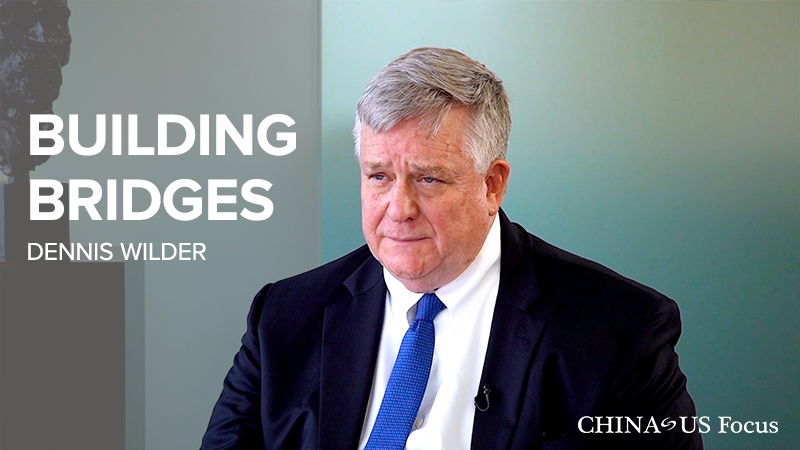Li Zheng, Assistant Research Processor, China Institutes of Contemporary International Relations
Jul 19, 2024
The two sides need to actively explore new models of cooperation with an open attitude to realize development together. How they balance competition and cooperation will not only affect their own relations but also the direction of the world.

Philip Cunningham, Independent Scholar
Jun 28, 2024
As tensions between China and the U.S. increase amid various global crises, there are worrisome parallels resembling the prelude to World War I. There is a critical need for proactive diplomacy to mitigate escalating tensions and avoid a potential conflict in the near future.

Dennis Wilder, Senior fellow at Georgetown University, Formal U.S. National Security Council's Director for China
Jun 21, 2024
In this interview, Dennis Wilder, senior fellow for the Initiative for U.S.-China Dialogue on Global Issues at Georgetown University, emphasizes the significanc
Mallie Prytherch, Researcher at Centre on Contemporary China and the World, University of Hong Kong
Jun 18, 2024
The unpredictable nature of Trump's China policy, influenced by his ideology, foreign policy team, and personal vendettas, makes it difficult to anticipate the direction of U.S.-China relations under a potential second Trump administration.

Ma Xue, Associate Fellow, Institute of American Studies, China Institutes of Contemporary International Relations
Jun 14, 2024
Washington’s new strategy may alter its trade dynamics with China, but China cannot be taken out of the picture. Most of America’s trading partners continue to be fed by Chinese supply chains, even as they boost their output of manufactured goods to the United States.
Zhong Houtao, Associate Professor, School of National Security, University of International Relations
Jun 14, 2024
Recently elected leader Lai Ching-te is turning toward open advocacy for independence. But his populist agitation is straining relations with the United States, dragging down economic development and potentially compromising peace and stability in the region.

Yin Haocheng, Graduate Student, Shanghai International Studies University
Jun 07, 2024
Biosafety-related bills in Congress will likely follow in the footsteps of semiconductor competition and become a new arena for U.S. competition against China. Regardless who wins the election in November, we can expect profound adverse implications for China’s industrial security.

Stephen Roach, Senior Fellow, Yale University
May 30, 2024
The United States does not have a coherent trade policy. It has a political strategy masquerading as trade policy that has taken dead aim at China. Unsurprisingly, China has responded in kind. With the two superpowers drawing on their allies for support – the US leaning on the G7 and China turning to the Global South – economic decoupling is the least of our problems.

He Weiwen, Senior Fellow, Center for China and Globalization, CCG
May 27, 2024
While high officials in the Biden administration — and President Joe Biden himself — have repeatedly proclaimed that America does not seek to decouple from China, the latest move to impose extreme tariffs on certain Chinese goods goes in exactly that direction. It’s a bad idea driven by U.S. election year politics.

Han Liqun, Researcher, China Institutes of Contemporary International Relations
May 23, 2024
The negative strategic narratives concocted by the United States to constrain China are increasingly taking on more offensive, instrumental and purposeful dimensions. They are slipping steadily toward more confrontational and perilous frameworks, much to the detriment of normalcy and peace.